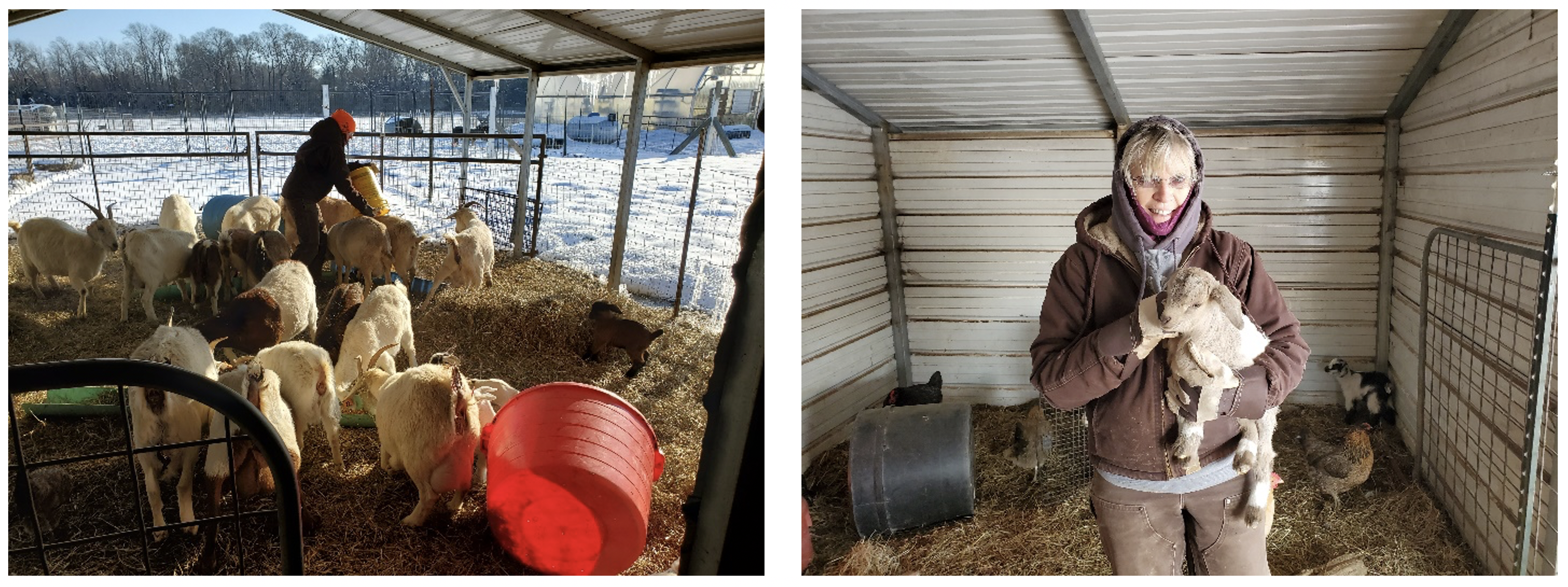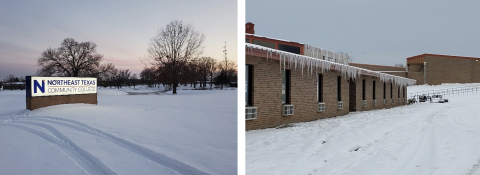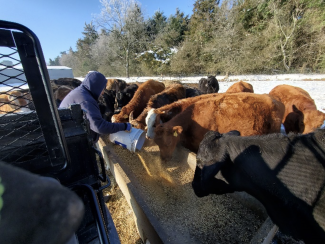
By: Robin Buck, NTCC Workamper
During Feb 10-17, 2021, two major storms had a widespread impact across the US and especially in the state of Texas. Governor Greg Abbot declared a state of emergency for all of Texas’ 254 counties in response to the severe winter weather impacting Texas. Mass power outages, frozen and broken water lines, water and food shortages, and persistent sub-freezing weather conditions combined to create a crisis that was unprecedented in its scope and severity.
Tom Ramler, Director of Plant Services at Northeast Texas Community College (NTCC), knew he had a good deal going with his Workamper Program. In the last 4 years, a team of RV volunteers has helped his maintenance crew with needs around the college campus in exchange for a campsite. Overall, they have contributed well over 4000 volunteer hours to benefit the school. What Ramler didn’t realize was how having this dedicated set of workers would save the day during a winter storm and freeze unlike any the state has experienced.
During this emergency just about everything was closed down, including schools. Even though no classroom instruction was happening at NTCC, the Agriculture (Ag) Department animals still needed care and feeding. When employees could not get into work due to bad road conditions, the ten WorKamper volunteers stepped into action. Using 4x4 utility vehicles (UTVs) they were able to traverse the campus and get to the two animal compounds across the highway.
One compound contains close to 90 cows and bulls on 250 acres of school land. These livestock needed to be fed and watered for their survival. Buckets of feed had to be delivered to three animal enclosures and hay bales had to be delivered to the pastures. In addition, patrolling for new baby calves and keeping an eye on weaker animals was crucial during the freezing temperatures. About 40 new calves had been born this season—several during this crazy week! One brave WorKamper even waded into the river to pull out a trapped and shivering calf.
Water was a significant issue as the severe cold continued and water troughs and pipes began freezing. At first, buckets were filled and carried by tractor to the troughs. By midweek, it was necessary to haul the water on the UTVs from the other side of campus after the tractors and Ag pipes froze. The dedicated volunteers did this twice a day in freezing temperatures to help care for all these animals.
The other Ag compound houses the pigs, chickens, goats, turkeys, geese, and donkeys. What is normally a lively area with animals roaming in their pens became a lonely sea of white snow as the animals huddled together. Special attention was needed for the 25 baby goats recently born, including several during thestorm. A covered enclosure with special warming lamps was set up to keep the young ones warm. Volunteers checked on the goats several times a day and provided additional food and water for the mama goats nursing their young.
In addition to taking care of the animals, WorKampers did their best to help in other areas as needed. They discovered a spraying water leak from a burst pipe in the nearby greenhouse and worked to quickly shut it off. They also helped repair a broken water pipe at the rodeo area and pulled out several stuck vehicles. Their round-the-clock monitoring and filling of a kerosene heater in the Plant Services warehouse prevented vehicles and supplies from freezing up.
The WorKampers were happy to be able to help during this unusual winter crisis. Not only did they figure out ways to help the school and the animals as an impromptu on-call emergency response crew, but they were also working to keep their RVs safe from the weather. Their water lines did freeze for a few days, but luckily, they had water tanks onboard to use. Fortunately, they did not lose electricity as space heaters were a big help when temperatures reached -1⁰!
As Ramler and his staff returned to work after “Snowmageddon”, they reflected on the help of the WorKamper volunteers. All the animals were cared for and safe, as were school personnel who did not have to brave dangerous roads trying to get to the campus. Damage from broken water pipes was minimized, preventing more significant repairs. Finally, the Plant Services building, supplies, and vehicles were spared from freezing temperatures. The WorKamper program proved to be a double blessing during this unprecedented storm crisis when his volunteers put in well over 125 hours to save the day at NTCC.


